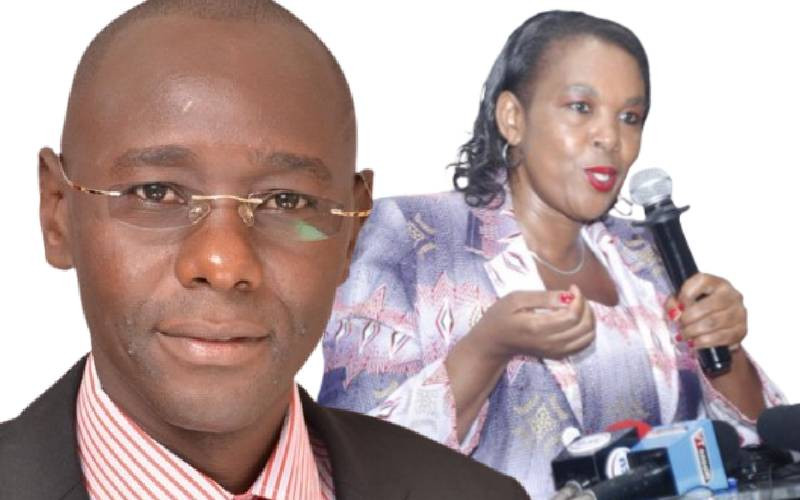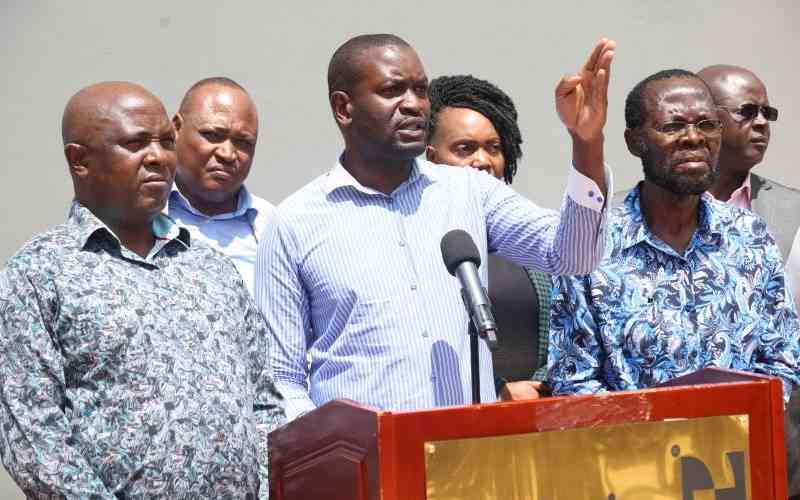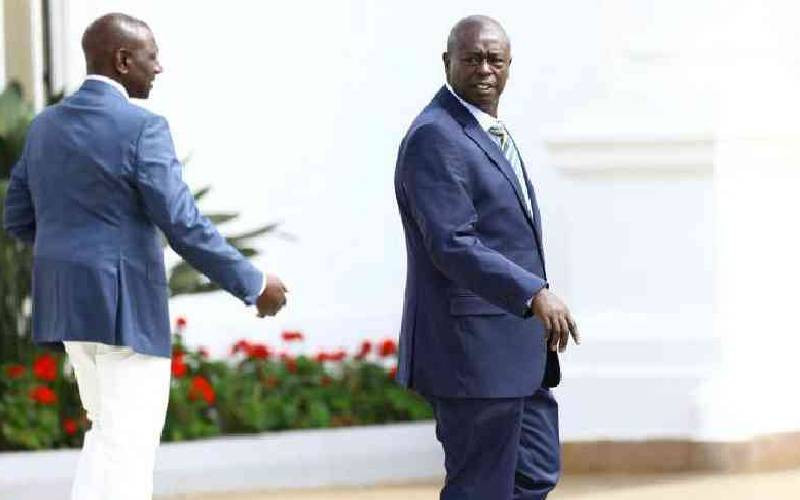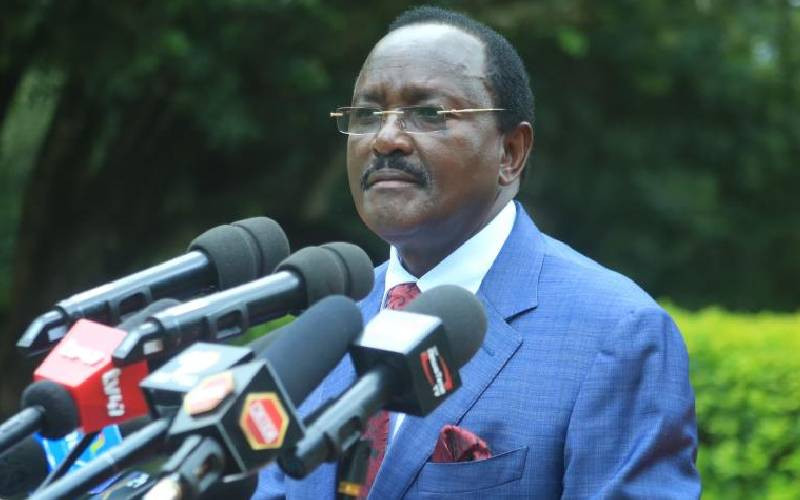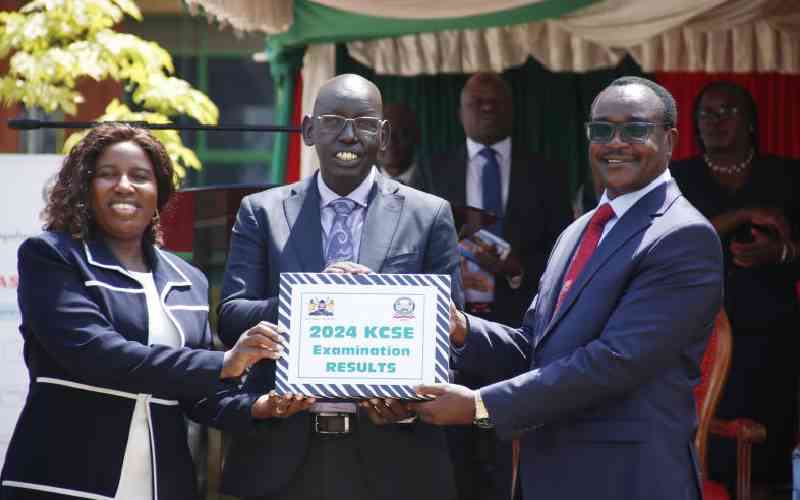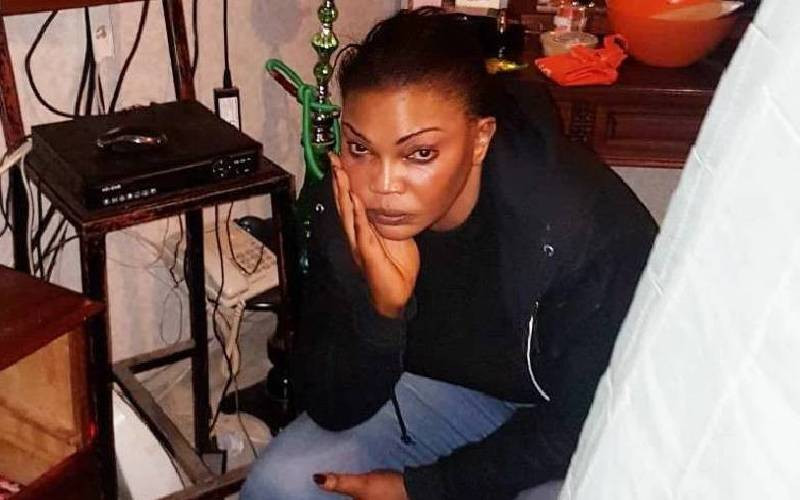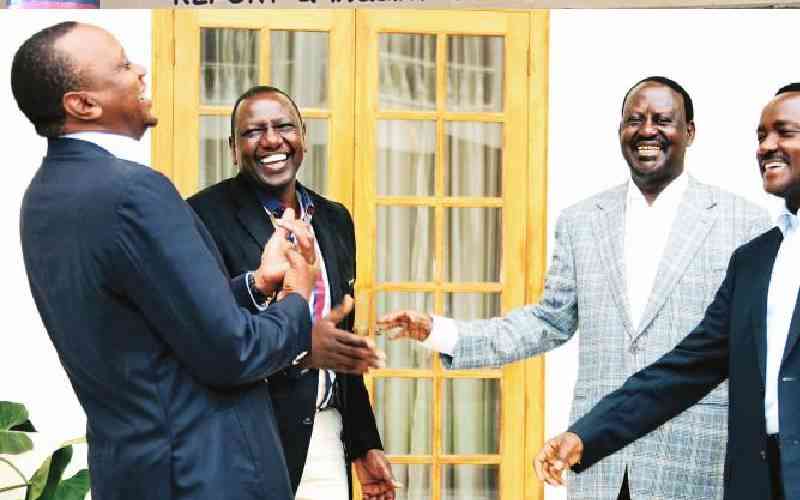By Biketi Kikechi
Deputy Prime Minister Musalia Mudavadi was Wednesday left fighting after his United Democratic Forum Party officials protested at a coalition deal with Deputy Prime Minister Uhuru Kenyatta’s TNA and Eldoret North MP William Ruto’s URP parties.
Nine officials of UDF National Executive Committee led by Martha Wangari petitioned the Registrar of Political Parties to reject the coalition deal on grounds that it did not receive any consent from the party’s governing body. The officials cited at least three grounds – the provisions of the Political Parties Act that require the depositing with the Registrar of all instruments of coalitions, certified copies of the resolution — including rules of the pre-election agreement – adopted by the Executive Committee of each political party in the deal, and that there be a record of voters of each party consenting to the coalition.
The opposition came despite two national officials – party Chairman Hassan Osman and Secretary General Dan Ameyo – having reportedly witnessed the deal with their TNA and URP counterparts.
Sources said the Registrar of Political Parties, Lucy Ndung’u, will examine the petition and determine a way forward when she returns from an overseas trip.
It also emerged that several parties had deposited multiple coalition deals with separate parties.
The first one was Uhuru’s TNA, which deposited three pacts – one with URP/UDF, another with PNU and the third one with the Conservative Party.
UDF was next, having deposited a coalition agreement with Kanu apart from the one with the TNA and URP alliance.
Coerced deal
Sources at the Registrar’s office said she would examine the agreements and give a way forward when she returns.
But last night, the UDF National Executive Council had met and ratified the party’s alliance with TNA and URP.
And at an exclusive interview with The Standard, Mudavadi denied that TNA and URP leaders coerced him into the pre-election pact after they visited his house for talks on Tuesday.
Mudavadi, Uhuru, and Ruto unveiled their coalition deal late on Tuesday evening at the Laico Regency Hotel, on a dramatic day that also saw Vice-President Kalonzo Musyoka join hands with his political nemesis – Prime Minister Raila Odinga – and Ford-Kenya leader Moses Wetangula in a new coalition aimed at winning the March 4 General Election.
Wednesday, Mudavadi indicated that the three parties would share positions in Government in a three-way arrangement.
“We agreed on a new power sharing deal of 33 per cent each for TNA and UDF, while URP was going to get 34 per cent because Ruto had shelved his presidential ambition,” said Mudavadi.
Stay informed. Subscribe to our newsletter
The deal spelt out the mode of nomination of the presidential candidate – in a free, fair and competitive process – and that nomination rules would be completed within 14 days.
Reacting to the timing of the deal, Mudavadi said: “As you are aware, we had been consulting with the two leaders for quite a while and the pact was finally signed and deposited to the Registrar before 5pm on Tuesday”.
Landslide victory
Mudavadi said the team was popular and they would soon be embarking on selling their agenda across the country’s 47 counties.
He played down fears that he might be short-changed in the nomination, saying it would be free and fair as that was the only way Kenyans would trust their partnership.
“Suspicion will only weaken the coalition and we should not engage in anything that will undermine our objective of securing a landslide victory in 90 minutes of play without going into extra time,” he said.
Mudavadi insisted that nothing had changed his quest to lead the country and he was sure his name would be on the ballot on March 4.
He said he was motivated to join the coalition by his desire to see Kenyans pick their leader in Round One instead of keeping the country in the grip of election fever.
“We are a national outfit that has brought together leaders from across the country and so it is cheap propaganda (talk of ethnic alliance) that cannot fool Kenyans,” said the Sabatia MP.
Mudavadi dismissed the zoning of representation areas as earlier agreed between TNA and URP as inconsequential.
“It is not part of the agreement and I think that could have been a campaign strategy that the parties had entered into, but that is subject to revision,” said Mudavadi.
In the original agreement, it had been agreed that URP takes control of the nomination of candidates in Rift Valley, Western, North Eastern, and parts of Eastern provinces while TNA was to field in the other areas.
 The Standard Group Plc is a
multi-media organization with investments in media platforms spanning newspaper
print operations, television, radio broadcasting, digital and online services. The
Standard Group is recognized as a leading multi-media house in Kenya with a key
influence in matters of national and international interest.
The Standard Group Plc is a
multi-media organization with investments in media platforms spanning newspaper
print operations, television, radio broadcasting, digital and online services. The
Standard Group is recognized as a leading multi-media house in Kenya with a key
influence in matters of national and international interest.
 The Standard Group Plc is a
multi-media organization with investments in media platforms spanning newspaper
print operations, television, radio broadcasting, digital and online services. The
Standard Group is recognized as a leading multi-media house in Kenya with a key
influence in matters of national and international interest.
The Standard Group Plc is a
multi-media organization with investments in media platforms spanning newspaper
print operations, television, radio broadcasting, digital and online services. The
Standard Group is recognized as a leading multi-media house in Kenya with a key
influence in matters of national and international interest.

